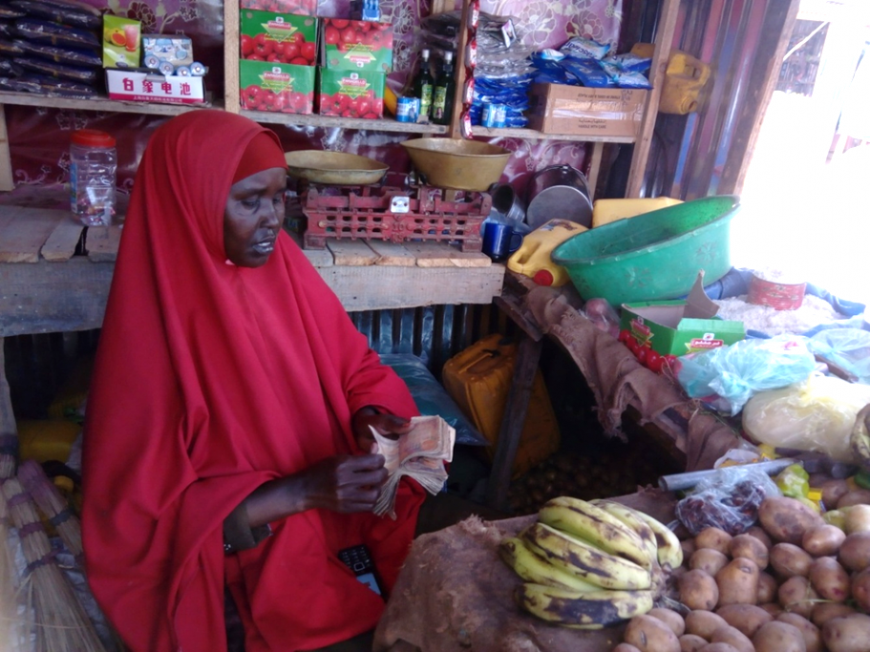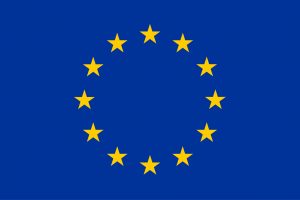Years of conflict have severely impacted the employment and livelihoods opportunities of populations living in urban towns of Somalia such as Kismayo. Many people live on less than a dollar a day, with children who are often poorly educated, as their families lack the means to pay for school costs.
Sadio’s story: Surviving the drought with a family of nine
Sadio is a 32-year-old mother of seven living in a village near Kismayo. Before the 2011 drought in Somalia, Sadio and her husband owned a farm that enabled them to meet their family’s basic food needs, while the surplus was retailed in Kismayo town to provide them with an income. However, the drought destroyed all of their crops, leaving the family destitute.
This prompted them to move to Kismayo town in search of alternative sources of income and aid to survive the appalling drought. When Sadio’s family settled there, they did not have any skill sets to help them land a decent job, and therefore relied on handouts from relatives and manual labour that was hardly available. Coupled with lack of capital to start any business, life was looking grim for them, increasing their vulnerability.

One day, as she was taking her usual walk in search of labour at the local market, she met one of her acquaintances from her village who was engaging in a milk selling business and doing well. She was encouraged and started off by buying and peddling milk around the neighbourhood, which provided her with some money to feed her family.
I was making very little money, a dollar some days while other days less than that. My main aim was to make savings to start my own business.
Despite her efforts, her family’s needs increased even more with the 2016-2017 drought, which left nearly 6 million people, half the country’s population, exposed to food shortages, and over 2.9 million people in need of emergency food aid. Sadio’s husband passed away after falling ill, as they could barely afford proper medical care. She thus remained the sole caretaker of her family.
When a woman is financially empowered, she is independent: Creating livelihood opportunities
Sadio was among the 12,000 persons who received financial support within the ACTED/SADO cash transfer programme: funded by the European Union, this project enabled to support drought-affected populations in Kismayo to cater for their families’ immediate needs.
After receiving the financial support, Sadio was able to set up her own milk selling business, and was selected as a beneficiary of the livelihood grant under the social safety nets project. She joined the Danwadag business group along with other 15 people from her village, and started selling milk, vegetables and other commodities with a grant value of 1,500 dollars as capital.
The cash I received enabled me to repay some of my loans.
She attended the business and entrepreneurship skills training provided to the beneficiary groups, exposing her to business ideas, basic business management/record keeping and customer management skills which furthered her business knowledge.
I see these different business skills giving me more knowledge and experience in running and sustaining a successful business of my own in the future.
Danwadaag business group identified her as an active member and she was designated to operate the group business; this was a big opportunity for her to increase her experience in business while growing her skills set. She receives 2.5 dollars per day as her wage and still benefits as a shareholder of the business group. For Sadio, this was a turning point in her life. She can comfortably afford to cover for her family’s basic needs and send her children to school to better their lives.
The STREAM Consortium, Social Safety Nets project funded by European Union builds household and community level resilience to drought and other hazards by providing improved access to income, which leads to strengthened and diversified livelihoods. To learn more about what STREAM is doing to face the drought in Somalia, you can watch this short documentary video.
 This publication was produced with the financial support of the European Union. Its contents are the sole responsibility of ACTED and do not necessarily reflect the views of the European Union.
This publication was produced with the financial support of the European Union. Its contents are the sole responsibility of ACTED and do not necessarily reflect the views of the European Union.